ARTICLE AD BOX
Jeremy Bowen
International Editor

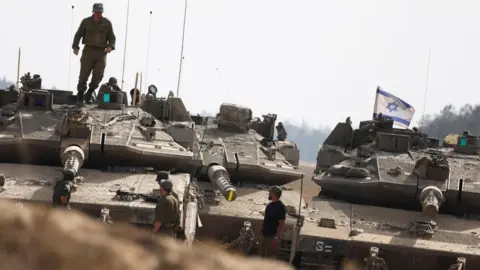 Reuters
Reuters
IDF attacks in Gaza have killed thousands since Israel ended a ceasefire in March
Israel went to war after the Hamas attacks of 7 October 2023 armed with an arsenal of weapons mostly paid for, supplied and then resupplied by the United States.
Its other allies gave Israel something just as potent in its own way: a deep credit of goodwill and solidarity, based on revulsion at the killings of 1,200 people, mostly Israeli civilians, and the sight of 251 people being dragged into captivity in Gaza as hostages.
Now it seems that Israel's credit has gone, at least as far as France, the United Kingdom and Canada are concerned. They have issued their strongest condemnation yet of the way Israel is fighting the war in Gaza.
Israel, they say, must halt its new offensive, which Prime Minister Benjamin Netanyahu says will destroy Hamas, rescue the remaining hostages and put all of Gaza under direct Israeli military control.
Their statement dismisses Netanyahu's arguments and calls for a ceasefire. Together, the three governments say that they "strongly oppose the expansion of Israel's military operations in Gaza" adding: "The level of human suffering in Gaza is intolerable."
They call for the release of the remaining hostages and recall that after the "heinous attack" on 7 October they believed that the Israeli state "had a right to defend Israelis against terrorism. But this escalation is wholly disproportionate".
Netanyahu's decision to allow what he called "minimal" food into Gaza was they said "wholly inadequate".
Netanyahu has hit back, saying the "leaders in London, Ottowa and Paris are offering a huge prize for the genocidal attack on Israel on October 7 while inviting more such atrocities".
He insisted the war could end if Hamas returned hostages, laid down its arms, agreed for its leaders to go into exile and Gaza was demilitarised. "No nation can be expected to accept anything less and Israel certainly won't," he said.
Netanyahu - who is sought under an International criminal Court warrant for alleged war crimes and crimes against humanity, which he has dismissed as "antisemitic" - had been under heavy international pressure to end the blockade of Gaza after a respected international survey warned of imminent famine.
At the London summit between the EU and the UK the President of the European Council, António Costa, called the humanitarian crisis in Gaza "a tragedy where international law is being systematically violated, and an entire population is being subjected to disproportionate military force".
"There must be safe, swift and unimpeded access for humanitarian aid," he said.

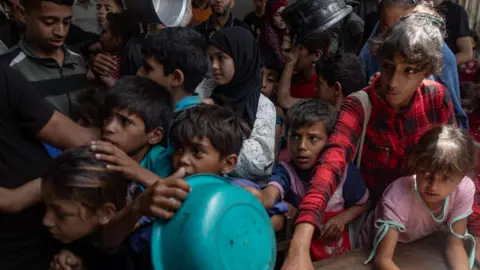 EPA
EPA
Only five trucks carrying aid entered Gaza on Monday
Netanyahu's reluctant decision to allow in limited supplies was condemned by his ultra nationalist coalition partners.
The Security Minister Itamar Ben Gvir, convicted in 2007 for incitement to racism and supporting an extremist Jewish group that Israel classifies as a terrorist organisation, complained that Netanyahu's decision would "fuel Hamas and give it oxygen while our hostages languish in tunnels".
Only five trucks made it into Gaza on Monday, as Israeli troops advanced and air and artillery strikes killed more Palestinian civilians including many young children.
Opponents of Israel's destruction of Gaza and the killing of tens of thousands of Palestinian civilians will say the governments of France, the UK and Canada are speaking out far too late.
Many of them have held months of demonstrations protesting about the death and destruction in Gaza – and more killing of Palestinian civilians and confiscation of land in the West Bank, the other side of the Palestinian territories, during military operations and raids by armed Jewish settlers.
But sometimes in the politics of war, a single incident carries symbolic power that clarifies and crystallises so sharply that it can force governments to action. This time it was the killing on 23 March by Israeli forces in Gaza of 15 paramedics and aid workers.
It came after Israel, on 18 March, had broken a ceasefire that had held for two months with a series of massive air strikes.
Five days into the renewed war an Israeli unit attacked the medical convoy, and covered the men they had killed and their bullet ridden vehicles with the sand. The Israeli account of what happened was shown to be untrue when a mobile phone was recovered from a body in the mass grave.
Its owner had filmed the incident before he was killed. Far from proving Israel's claim that the emergency workers were a potential threat to the Israeli combat soldiers, the video from the grave showed that clearly marked and well-lit ambulances and emergency vehicles were attacked systematically until almost everyone inside them was killed.

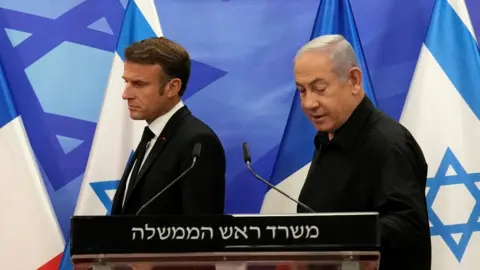 Reuters
Reuters
Macron (left) has led criticism of Israel's new offensive in Gaza
Alarm has been growing fast since then, not just among Israel's usual opponents. Its European allies, with President Macron of France leading the way, have been toughening their language. The statement calling for an end to Israel's offensive is their harshest criticism of Israel so far.
A senior European diplomatic source involved in their discussions told me that the tough language reflected a "real sense of growing political anger at the humanitarian situation, of a line being crossed, and of this Israeli government appearing to act with impunity".
More ominously for Israel, the statement says that "we will not stand by while the Netanyahu government pursues these egregious actions. If Israel does not cease the renewed military offensive and lift its restrictions on humanitarian aid, we will take further concrete steps in response".
They do not specify what those might be. Sanctions could be one possibility. A bigger step would be to recognise Palestine as an independent state.
France has been considering joining the 148 other states that have done so at a conference it is co-chairing with Saudi Arabia in New York in early June. The UK has also talked about Palestinian recognition with the French.
Israel, pushing back hard, has told them they would be presenting Hamas with a victory. But the tone of the statement made by the French, the Canadians and the British suggests that Israel is losing its ability to pressurise them.

 7 hours ago
4
7 hours ago
4

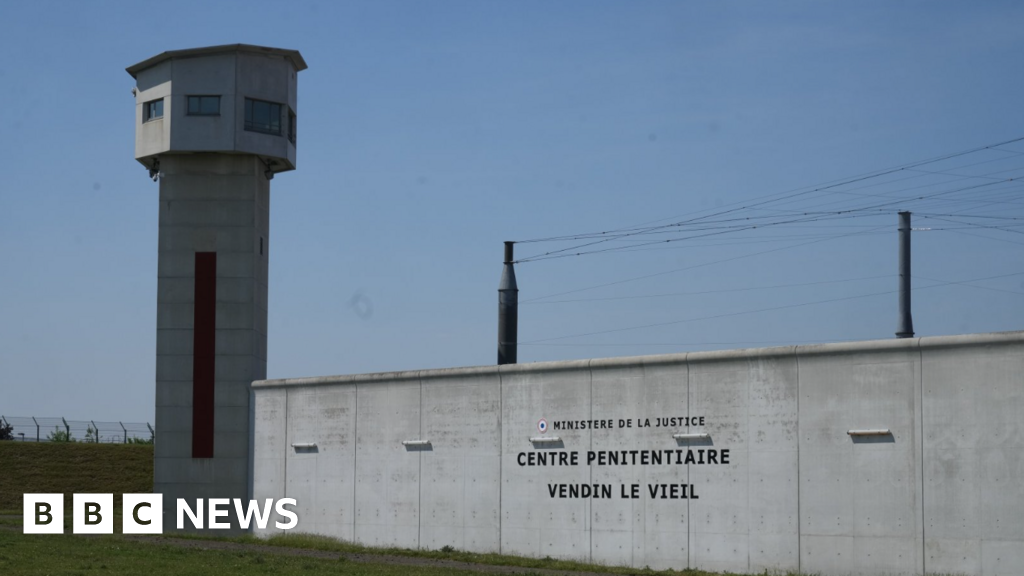
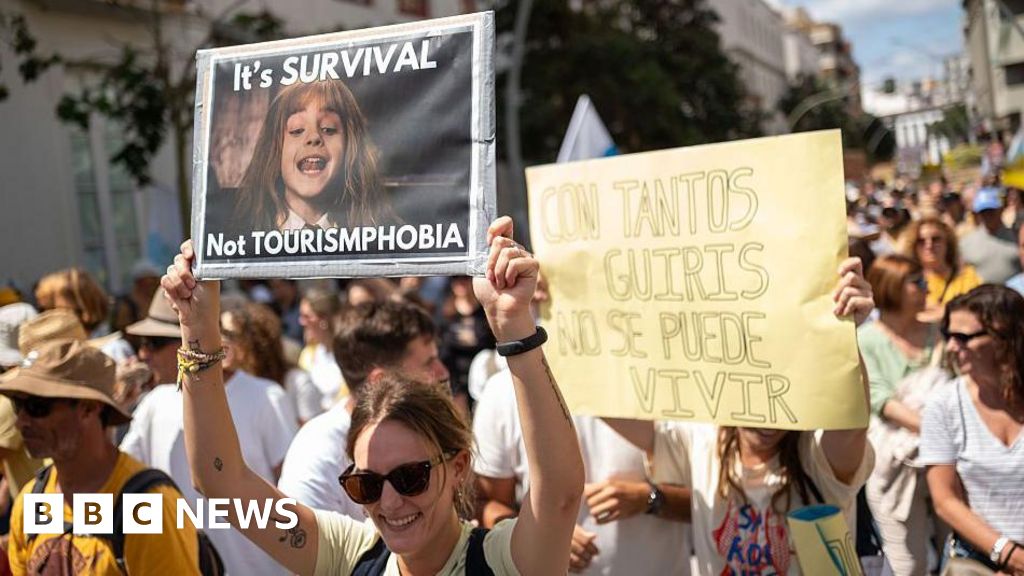





 English (US) ·
English (US) ·